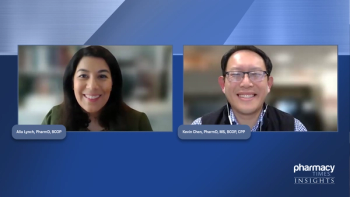
Overcoming Barriers to Access and Treatment
Panelists discuss how pharmacists are essential in managing chronic graft-vs-host disease (cGVHD) by addressing challenges like toxicity, financial and logistical barriers, and a lack of awareness, while advocating for patient education, collaboration with health care teams, and ensuring access to necessary therapies.
Episodes in this series

Pharmacists play a crucial role in managing chronic graft-vs-host disease (cGVHD), though they face several significant barriers that affect patient outcomes. Key challenges include toxicity, particularly the risk of infections due to steroids, which can cause setbacks for patients. Additionally, financial toxicity remains a major concern, as the high cost of medications can be a burden, depending on a patient's insurance coverage. Logistical barriers, such as patients traveling long distances to treatment centers, further complicate access to therapies like acetone monoclonal antibody and extracorporeal photopheresis. There is also a lack of awareness among primary care providers and the community regarding the symptoms and complications of chronic GVHD, which often leads to delayed diagnosis and treatment.
Pharmacists help mitigate these barriers by working closely with internal teams to address financial and logistical challenges. At centers like Emory, specialty pharmacies and prior authorization teams assist with navigating insurance issues and securing patient assistance programs. However, the availability of grants for GVHD treatments remains limited, which is particularly challenging for pediatric patients or those with rare conditions. Despite this, pharmacists emphasize the importance of patient education to ensure that patients understand the necessity of certain treatments and the rationale behind them, fostering better adherence and outcomes.
In addition to supporting patients directly, pharmacists also play a role in educating other health care providers, such as nurses and ophthalmologists, about the potential organ manifestations of GVHD. For example, systemic therapies may not be effective for certain complications like eye GVHD, making referrals to specialists essential. By advocating for these patients and ensuring they receive comprehensive care, pharmacists help to improve the overall treatment experience, even in the face of financial and logistical challenges. This multidisciplinary approach ensures that patients receive the best care possible, despite the numerous barriers they may face.
Newsletter
Stay informed on drug updates, treatment guidelines, and pharmacy practice trends—subscribe to Pharmacy Times for weekly clinical insights.

























